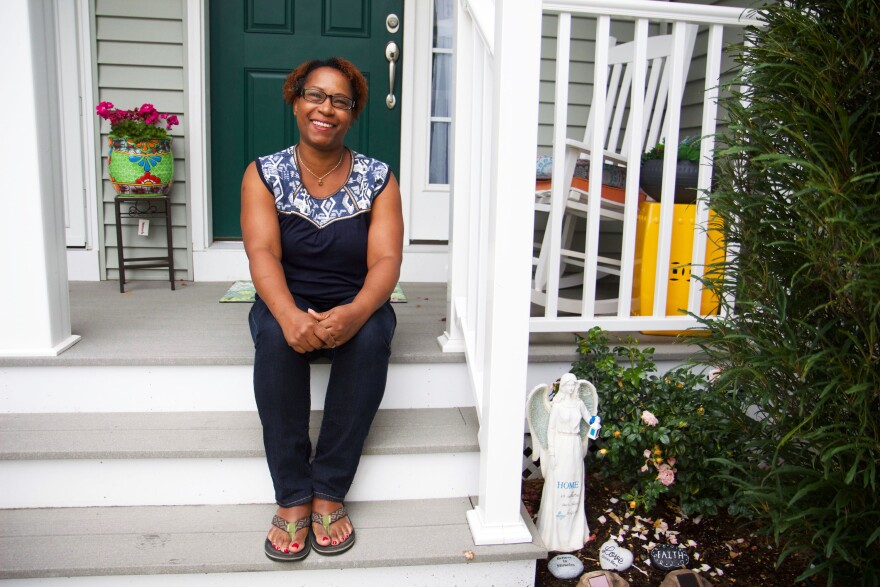Islane Louis, 44, was visiting the United States as a tourist when the deadly 2010 earthquake hit her home country of Haiti. Under temporary protected status, she moved to Vermont to work as a nurse. Eventually, her family followed, and they now live in Colchester. She’s one of three people VPR spoke with shortly after receiving U.S. citizenship.
Here’s Islane’s story, in her words.
Click here to go to VPR's 'New Citizens' project page.
(Note: This interview has been condensed and edited for clarity).

So my name is Islane Louis. I live in Colchester, Vermont. And I love, I love being a nurse.
I love science, so I wanted to be an engineer. In Haiti, usually you don't get to choose what you want. It depends. Sometimes you have to do what's available. Nursing was like, what was available. I say, “OK I will apply.” And I love it — every single thing.
I started to travel here as a tourist, and then I heard about the nursing shortage. And at that time, there were a lot of recruiting agencies that would recruit nurses from overseas.
Honestly, I wasn't really ready to leave Haiti because I had jobs. I had a lot to do there.
More from VPR — Meet Three Vermonters Who Became U.S. Citizens This Year: Arunima Dasgupta [Dec. 31]
And then in 2010 we had that earthquake, and I was here when that happened, and it was President Obama at that time. So they granted all Haitians that was here a temporary — you can stay temporarily and work. They give you a work permit.
I have family in Montréal, and there’s a big Haitian community there. I say, “OK. Maybe Vermont will be the right choice.” I didn't know anything about Vermont, and I say, “OK.” I told my family, “I choose Vermont.”
But my family were worried, because they say, “It is one of the whitest states in America. You’re a black woman. Why do you think you can move there with your children and your family?”
It was overwhelming at the beginning. Everywhere you go, you will be like, the only, like, black person around. The black people in the street, they will wave at me and smile. I didn't get it, but someone explained to me, it is the way, when a black people see a black people in Vermont, they’re so happy to see you.
More from VPR — Meet Three Vermonters Who Became U.S. Citizens This Year: Said Bulle [Dec. 31]
At that point I didn't have any clue about, like, racism, what racism might look like. And then I started to have a lot of questions from patients, actually, and their family. They will be like, “Where your accent came from?” And then I would say, “I’m from Haiti.” “Haiti? What are you doing here?” So I started to think, did they say that because they can see that it’s a big change? Or if they say that because I'm not where I’m supposed to be?
But I did stay anyway, and I work for UVM. And I'm also a clinical instructor working for the University of Vermont.
It's become like, more stressful, day by day, like, to be an immigrant. I sometimes have some of my co-workers will be worried about me when they heard something on the news about immigration. They will come to me: “Are you OK? Are you OK?” I say, “Yeah, don’t worry, I’m OK.”
They want me to be here. They want me to be OK. They want me to feel welcome.

These stories were produced by digital producer Elodie Reed. Production assistance came from Emily Corwin and editing from Mark Davis. Music by A2VT and Blue Dot Sessions. Special thanks to Liam Elder-Connors, Henry Epp, Chris Albertine, Noah Cutter, Jonathan Butler and Meg Malone.




